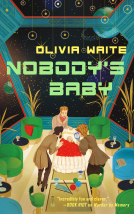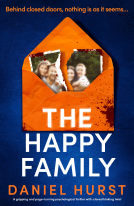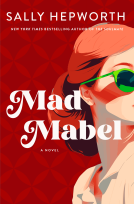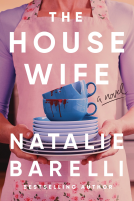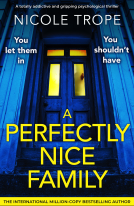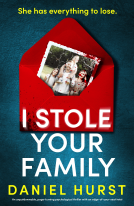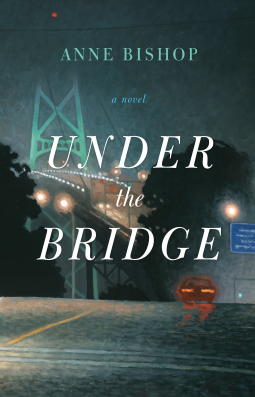
Under the Bridge
by Anne Bishop
This title was previously available on NetGalley and is now archived.
Send NetGalley books directly to your Kindle or Kindle app
1
To read on a Kindle or Kindle app, please add kindle@netgalley.com as an approved email address to receive files in your Amazon account. Click here for step-by-step instructions.
2
Also find your Kindle email address within your Amazon account, and enter it here.
Pub Date Apr 01 2019 | Archive Date Jun 12 2020
Fernwood Publishing | Roseway Publishing
Description
“There are people who break open and make a new, bigger, self. But some of us are … brittle.”
When stress causes an old trauma to surface, Lucy, a longtime community organizer, teacher and anti-poverty activist, loses control of her life. On probation and living on the streets of Halifax’s North End, all she has left is friends. Faithful friends like Judith, her lawyer, who is helping her take back her life.
Lucy begins to regularly sneak into Judith’s basement to take refuge from the cold, but Lucy’s presence in the house betrays their friendship, and she uncovers mysteries from Judith’s past. As events draw their lives closer, Lucy and Judith are forced to face the toll taken by their secrets. Each of them must choose between confronting past pain or remaining broken.
Advance Praise
"This is a Halifax we do not know, of the down and out, the mentally ill, the homeless, of prostitutes and dumpster divers, but also of poverty activists and civil rights lawyers, and most of all, young people quick to mobilize around a cause. Anne Bishop has told a tale of the complex reality of these characters that is also full of hope. Starting out with Lucy under the MacDonald Bridge, sleeping in her clothes, with only an earless cat to keep her warm, I could hardly put the book down."
— Susan Haley, author of Petitot
"Bishop’s skillful use of language and style, though subtle and unobtrusive, captured the very essence of being homeless, of living in poverty, devoid of hope. I was inside the story from beginning to end. I became informed without being preached at. I was brought inside the lives of those who are disenfranchised and lost, and I witnessed the human will to survive."
— Wendi Stewart, judge for the 2016 H.R. (Bill) Percy Novel Prize
Available Editions
| EDITION | Paperback |
| ISBN | 9781773630434 |
| PRICE | $21.00 (USD) |
| PAGES | 340 |
Average rating from 23 members
Featured Reviews
 Reviewer 434170
Reviewer 434170
3.5 stars rounded up to 4.
Many thanks to NetGalley and Fernwood Publishing for this compelling book in return for an honest review.
It depicts the disenfranchised people living on the Halifax Streets, and provides the reader with the gritty reality of homelessness, being wet, tired, and cold on the city streets, searching for food in dumpsters behind restaurants and the accompanying stress of extreme poverty. We also learn about the poverty activists, drop-in centers providing meals, crowded shelters where beds are provided if one is lucky to be on the waiting list, and civil rights lawyers. Among the homeless are mentally ill, prostitutes, and people out of work and out of hope.
The main character is Lucy, a woman in her 60s who was once an anti-poverty activist and a teacher. She is now unstable, has a nasty temper, and rants publicly against capitalism destroying the economic livelihood of the poor at home and abroad. She worked amongst the poor in Guatemala and what happened there haunts her memory. Lucy is on probation and on medication for her mood swings. We first meet Lucy while she is trying to sleep under the bridge and is cold and wet. She is overweight, has arthritis accompanied by mobility issues. In one scene she hides in a filthy, reeking dumpster.
One day she is befriended by a young woman and meets her friends who are searching dumpsters for discarded food. Lucy has been sneaking into the basement of a lawyer, Judith, whom she regards as a friend because she has been an advocate for the troubled woman. She has a key to Judith’s home as she was permitted to store her few belongings there. She realizes she is breaking Judith’s trust, but the temptation of a warm dry place to sleep is too great. Soon the young people invade the basement as squatters.
I thought the book was well written and a learning experience. Her description of daily life on the streets, the hunger and dirt, and the will to survive was very well done, and the memorable characters were well developed in situations which seemed real. I found the first half of the book most compelling, and the later part where Lucy and others were squatters in Judith’s basement was not as strong as their situation on the streets. I wished the backstory of what happened in Guatemala had been revealed earlier in the story and felt Judith’s story was too drawn out.
Recommended for poverty advocates and anyone wanting an informative story about what it means to be down and out in Halifax and elsewhere. An enlightening and grim portrait of extreme poverty and the daily struggle to survive.
The author in Under the Bridge examines the very nature of the homeless, of living in abject poverty and the daily struggle to survive. This book is well written; I learned a lot. The dirt, the hunger, the struggle to survive, the daily life on the streets were very well described and the characters well developed. Thanks to Netgalley and the publishers for this book in exchange for an honest review.
Under The Bridge is eye opening and sad. It's the story of the homeless and poverty stricken. These people are living on the streets and under bridges in Halifax. It's a gritty raw look at the hunger, dirt, and horrible living conditions. Even shelters aren't much help because they're too overcrowded. Honestly, there are characters and a story here, but it's the topic of poverty that interests me. I think this is a well written realistic portrayal of life in extreme poverty and life homeless. It's such a relevant topic. I recommend for anyone who is interested in the subject matter. Thanks to NetGalley for an arc in exchange for an honest review.
 Ruth R, Librarian
Ruth R, Librarian
Fingers crossed I don't ever slip far enough to experience what this character is going through. The line between the having enough and having very little is really a very thin line. The way this is written/narrated makes the situation very realistic! (I've still many pages to go but wanted to post a partial review). The low rating is only for the topic, not the writing.
With this story based around Lucy the author attempts to get readers to question their thoughts on poverty. I live in England and see news reports of far away countries with starving children and like most want to give something to help but does my contribution really bring aid ? Like many western counties we have a welfare system that offers financial help to many but does that mean poverty is eradicated in my country ? Perhaps those who have to choose between heat or food would disagree and then there's the question of just why the third world is poor. Are we greedy consumers contributing to the suffering? This book approaches questions such as these in a fictional manner to make the reader stop, think and question.
So what actually happens ? Lucy is an older woman who when we meet her is homeless and struggling with reality and some would say she's broken. Having been a missionary, an educator and a radical thinker she's tried to make a real difference but now is alone and yet still has more to give. Her history isn't immediately apparent and her background is very slowly dragged out but as we read she makes new connections that start to take over her life. New friends help her but old friends still exist and Lucy journeys into herself to confront her past and incite a new future.
As this ended I remembered seeing Gone With The Wind a long time ago with the final scene reminding us that there's always tomorrow and I am left with that very same feeling of hope. At times slower than I prefer but I didn't want to put it down so I think that's a recommendation in itself. A book to encourage everyone to question what is right for our planet and its inhabitants.
This voluntary take is of a copy I requested from Netgalley and my thoughts and comments are honest and I believe fair.
 Kelly C, Reviewer
Kelly C, Reviewer
I love Anne Bishop's writing but this was different. I struggled at first with the story but was so glad I did by the end. Anne's books always leave me satisfied and wanting more.
Under the Bridge by Anne Bishop is the exploration of an under-represented group in popular fiction, the poverty stricken and homeless in Canada. This is the story of Lucy, a former activist for anti-poverty groups, who has herself fallen on hard times and is living under a bridge. Lawyer Judith becomes an essential support to Lucy, and her home becomes a sanctuary of sorts until Judith's own circumstances take a dramatic turn for the worse.
I found this to be an enlightening read, educational but never preachy. I came away with, if not an understanding, a heightened awareness of the plight of Canada's most destitute population.
Many thanks to NetGalley and Fernwood Publishing for this ARC.
Author Anne Bishop presents an intriguing story about an older homeless woman trying to deal with mental illness and its ramifications. Lucy, in her 60s, is bounced from shelter to shelter as she frequently forgets her meds. This puts her in direct conflict with society's expectations.
Lucy used to be a part of the community that helped those on the streets and on welfare, but at some point she became people she once tried to help. Bishop does an excellent job with her depiction of loneliness, homelessness and desperation. There's no sugar coating what life can be like for someone on the fringes. When the last page is turned, the reader will view real-life socially compromised situations with different eyes.
Readers who liked this book also liked:
L.M Montgomery
Children's Fiction, Comics, Graphic Novels, Manga, Teens & YA
Silvia Moreno-Garcia
Historical Fiction, Literary Fiction, Sci Fi & Fantasy


